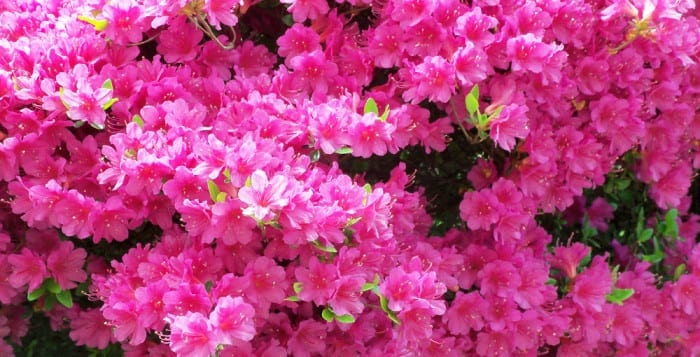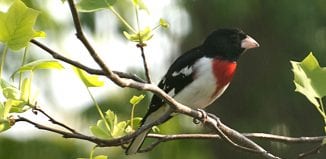How much are you willing to do in the garden?

By Ellen Barcel
Are you planning to renew your landscaping, put in new plants, or take out some old ones? As a gardener you need to know about plants, but you also need to consider your lifestyle and how much time and energy you’re willing to put in to achieve the effect you desire.
Do all the adults in the house work full-time jobs, some even with overtime? Do you frequently take trips during the warm weather? Are you away from your home on vacations? Do you spend lots of time at the beach? If so, you probably want to enjoy your garden when you’re home and not spend time working in it. If, on the other hand, you’re newly retired and just love getting out in the dirt, then gardening is not work — it’s a joy. Now, some things to consider.
A lawn needs to be mowed once a week to 10 days. An acquaintance of mine, many years ago, had two acres of property, almost all of it with a lush lawn. On more than one occasion I heard complaints about how much time he had to spend every weekend mowing his lawn. One alternative for him would have been to hire a service to do this weekly chore. Some people go this route, but it does cost more than putting a gallon of gas in your mower. In fact, if you have a service, you don’t even need to own and maintain a mower.
The best alternative, however, and definitely my preference if I had two acres of lawn, would be to cut back drastically on how much lawn I actually had. Plant trees and shrubs that need minimal maintenance. It’s better for the environment and better for wildlife, which will soon make your garden their home. And you will spend a lot less time mowing.
Another area to consider when deciding how much time you want to spend working in the garden is plants that are prone to diseases and insects. Roses, for example, are gorgeous but notorious for their problems with aphids as well as black spot and powdery mildew. If you absolutely adore roses and have the time, sure, plant them, knowing that you’ll need to spray for insects and diseases periodically. Look for disease-resistant varieties. Another consideration with roses is their thorns. This is a special problem if you have children or grandchildren who will be running around the yard and possibly tripping into them.
A third consideration is pruning. If you select lots of plants that are quick growing and need lots of pruning, then you’re going to use up your weekends with the sheers in your hands. This is especially true if you have topiary, which must be carefully and artistically pruned periodically to maintain the look you want.
Then there’s watering. If you have the average Long Island garden, you have one that periodically needs watering. If you go away a lot during the mild weather, what happens to your garden? Do you ignore it, only to come home to a disaster? Pay someone to come periodically and take care of it? Install an irrigation system? Remember, container plants dry out more quickly than plants in the ground and need more supplemental watering. Or do you plant only native plants, which need minimal maintenance and supplemental water.
If you don’t want to spend time adding lime to the soil (sweetening or raising the pH), use only plants that thrive in acidic soil such as rhodies, azaleas, blueberries etc.
There’s no right answer for everyone. But, you do need to look at your own time and energy level and decide which works best for you. If you love to be out in the garden, enjoy the sun on your face, get your hands dirty and love to see those little green sprouts grow and thrive, fine. If because of finances, time or energy you can’t spend that much time working in the garden, then simplify by putting in native plants, which need minimal maintenance, and spend your time enjoying your garden.
Ellen Barcel is a freelance writer and master gardener. To reach Cornell Cooperative Extension and its Master Gardener program, call 631-727-7850.






